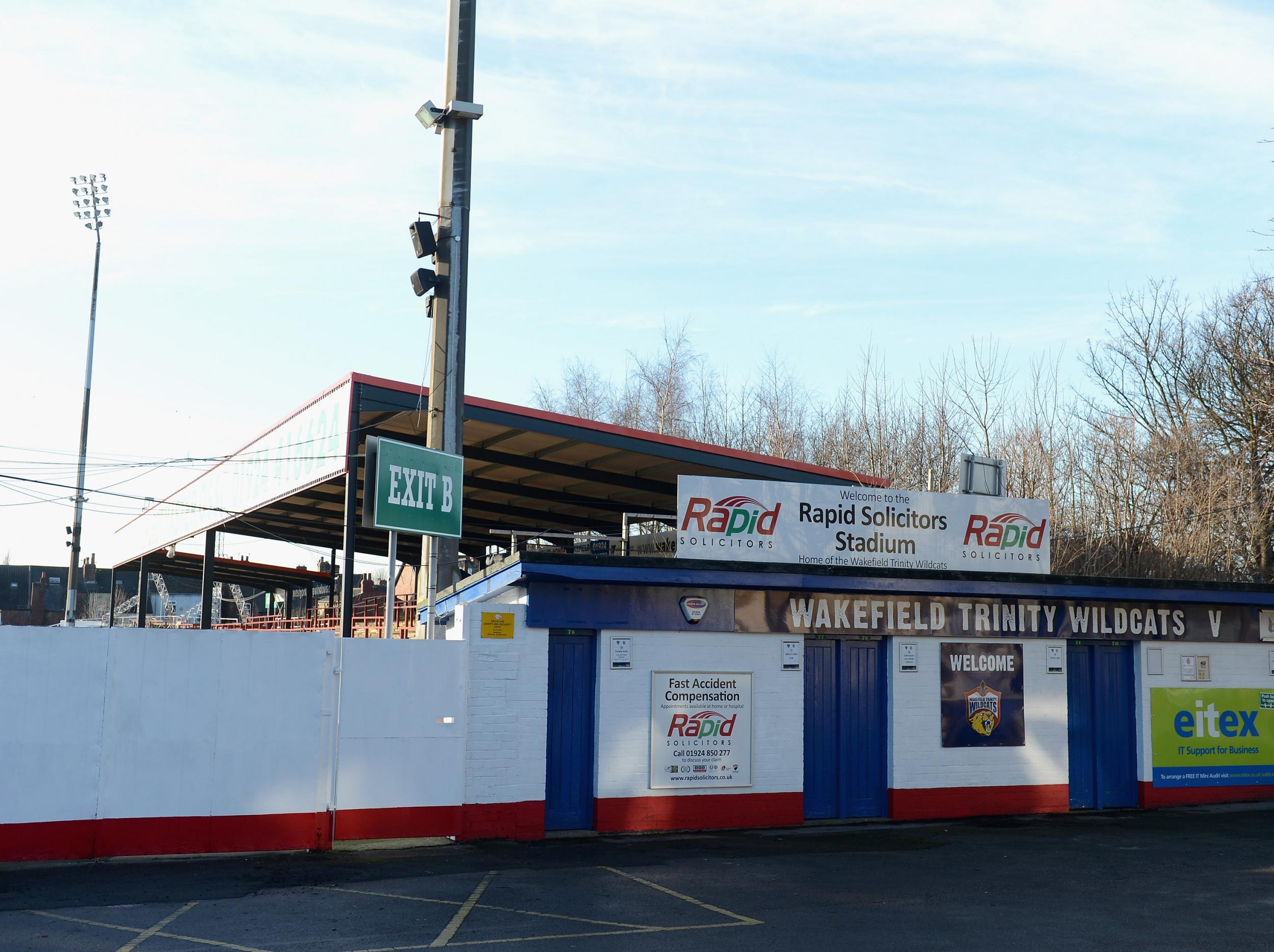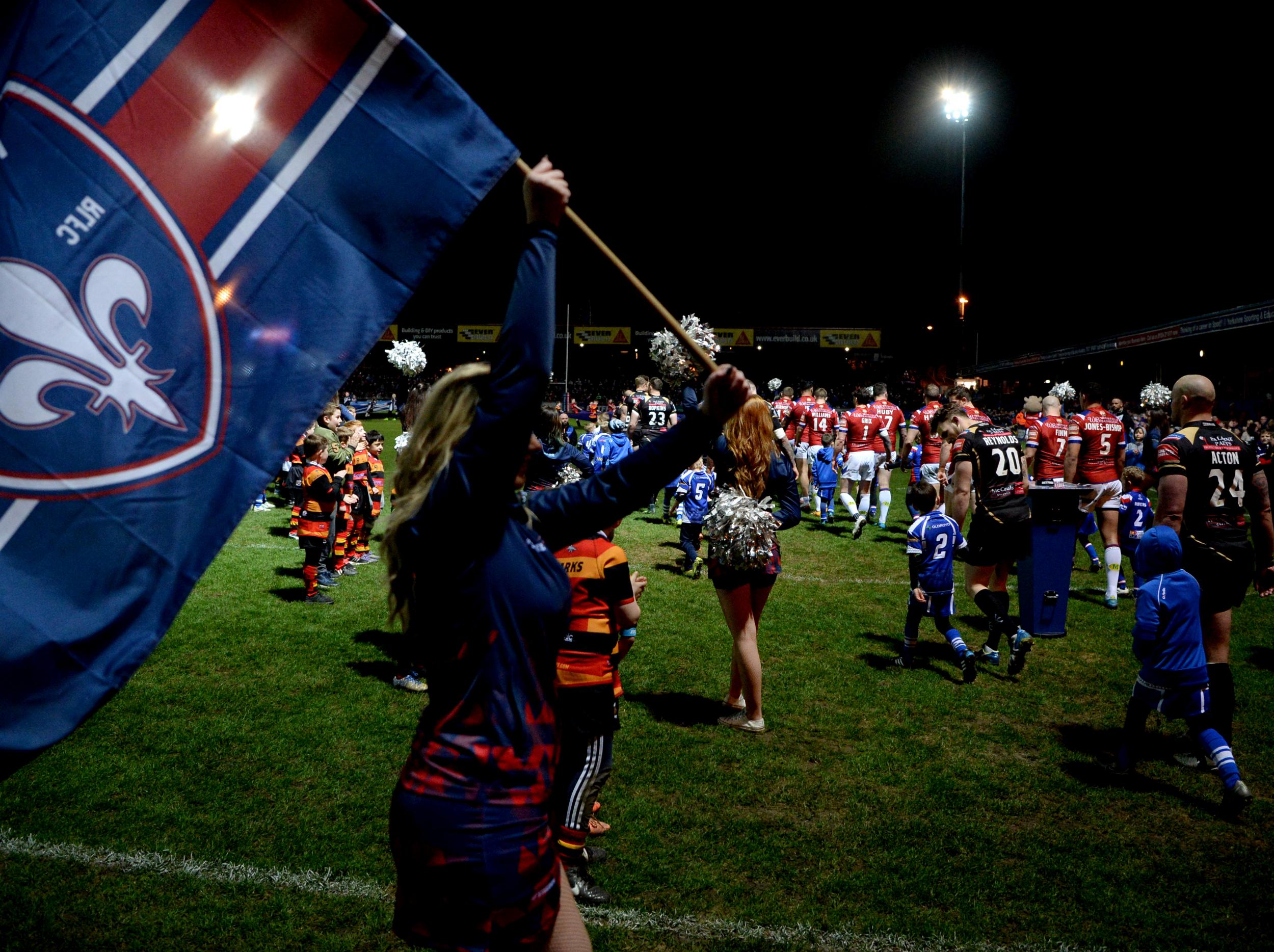Future of Wakefield Trinity remains shrouded in doubt with no evidence promised new stadium will be delivered
There remains no new evidence that the developer of a prime piece of industrial land will be pressed to build the club their urgently needed new stadium

Your support helps us to tell the story
From reproductive rights to climate change to Big Tech, The Independent is on the ground when the story is developing. Whether it's investigating the financials of Elon Musk's pro-Trump PAC or producing our latest documentary, 'The A Word', which shines a light on the American women fighting for reproductive rights, we know how important it is to parse out the facts from the messaging.
At such a critical moment in US history, we need reporters on the ground. Your donation allows us to keep sending journalists to speak to both sides of the story.
The Independent is trusted by Americans across the entire political spectrum. And unlike many other quality news outlets, we choose not to lock Americans out of our reporting and analysis with paywalls. We believe quality journalism should be available to everyone, paid for by those who can afford it.
Your support makes all the difference.The future of rugby league’s historic Wakefield Trinity club remains mired in uncertainty with no evidence that the developer of a prime piece of industrial land will be pressed to build the club a new stadium, in line with promises to supporters.
The Super League competition demands a certain standard of stadium – at least 2,500 covered seats – and the state of the historic Belle Vue, thought to be the oldest professional sports ground in the world, is way beneath that and no longer fit for purpose.
A solution seemed to have been found five years ago when a property firm was granted potentially lucrative permission to develop an 200-acre parcel of green belt near the M62 and M1 motorway.
But the planning approval was granted on condition that the developer – Yorkcourt Properties - provided a tangible community benefit in return, by contributing £9m towards the cost of a new stadium: a common planning trade-off known as a Section 106 agreement.
One of the club’s directors, Chris Brereton, told The Independent last month that Trinity’s Super League license would be given up, if necessary, if the council which granted the approval did not enforce the agreement.

Publicity about the failure to move towards building the stadium led to Wakefield Council leader, Peter Box, to state last week that the terms of the legally-binding agreement with the developer had been modified to ensure that building could start in the medium term.
But the council has been unwilling to release a copy of the new agreement to the Trust which will build the new stadium. The Trust has also asked the developers to release a copy of the agreement to them, though nothing has been made available.

Brereton, Director of both the Trust and Wakefield Trinity said: "We were delighted and optimistic on hearing Peter Box's announcement. But that optimism has been somewhat dampened by the Trust seemingly being excluded from seeing a copy of the draft agreement."
The council says that the stadium will be built when a pre-agreed level of development takes place on the site, bringing the financial benefit to the developer which can trigger the stadium build. “We can’t force developers to develop (at the required pace to get a) stadium built,” said acting chief executive, Andrew Wallhead.
Join our commenting forum
Join thought-provoking conversations, follow other Independent readers and see their replies
Comments